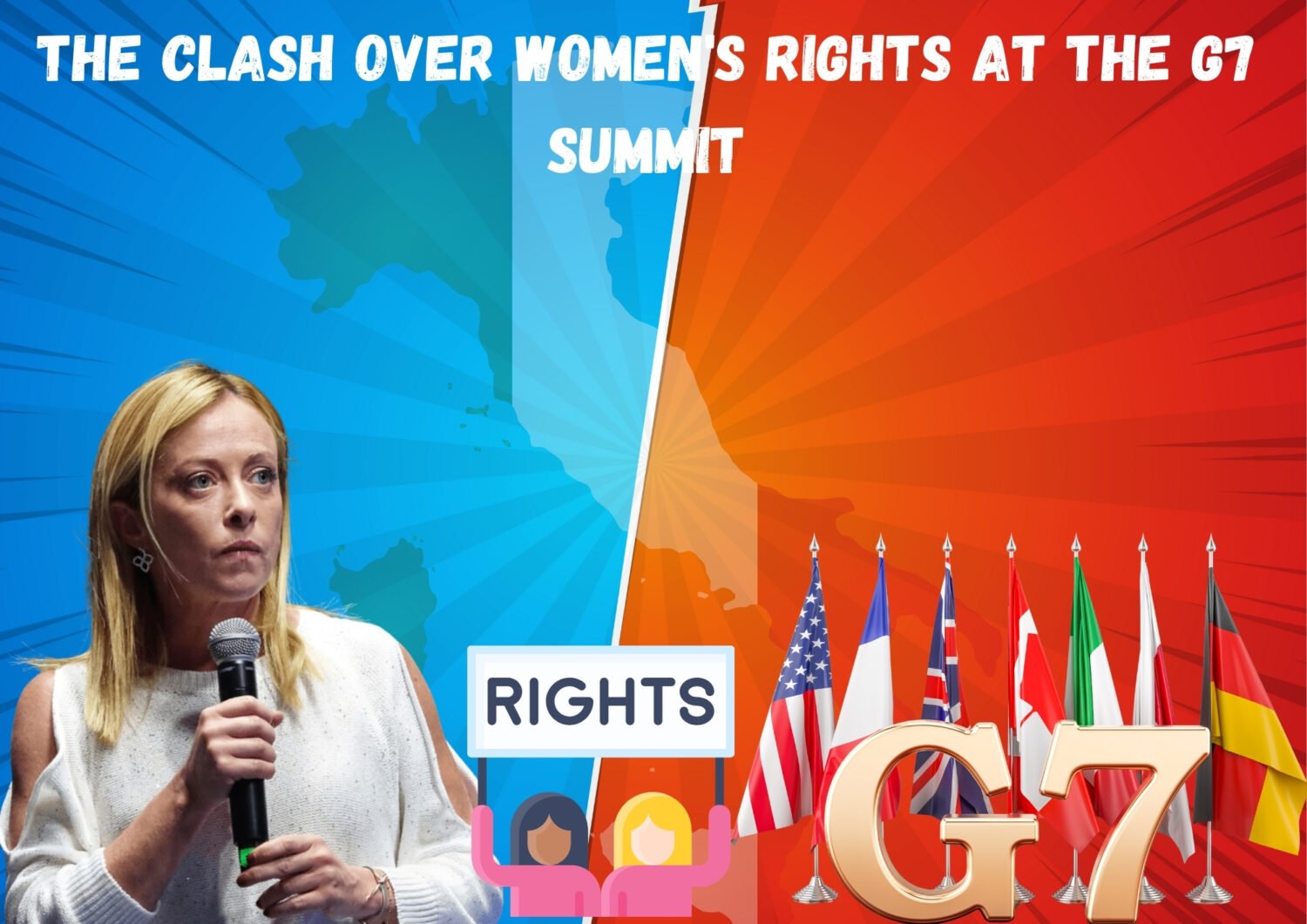Will the G7’s commitment to women’s rights waver under the weight of political discord? Dive deep into the controversial omission of ‘abortion’ from this year’s G7 summit statement.
Echoing the halls of the recent G7 summit, a diplomatic tug of war emerged, focusing on the notable absence of an explicit commitment to ‘safe and legal abortion’ from the meeting’s final statement.
In a striking departure from last year’s summit held in Japan, which saw G7 nations collectively pledge to address access to safe and legal abortion, this year’s summit, hosted by Italy, featured a final statement with a conspicuous void. The omission stirred up friction among G7 nations, particularly between the summit host Italy, France, and the US.

The current statement, instead of redressing the abortion commitment, simply reiterates the commitments made at the Hiroshima summit towards comprehensive and universal access to quality health services for women. Italian Prime Minister Giorgia Meloni, who has been vocal about her opposition to abortion, defended the omission, attributing it to preventing repetitiveness and maintaining that the controversy was “totally contrived.”
However, her stance was met with resistance from French President Emmanuel Macron and US President Joe Biden. Macron publicly expressed his disappointment at Italy’s position on abortion, while the US administration reportedly pushed back against Meloni’s attempt to downplay the language on women’s rights.
Abortion, although legal in Italy since 1978, remains a contentious issue due to the high number of medical professionals who refuse to perform them on moral or religious grounds. Rights activists have accused Meloni, who describes herself as a “Christian mother,” of making it harder to terminate pregnancies.
Despite the controversy and the failed attempts to use explicit wording on abortion, a senior EU official underscored the importance of the preserved commitments to promoting sexual and reproductive rights. This incident underscores the persistent global struggle for women’s right to choose and the political intricacies that often accompany it.
